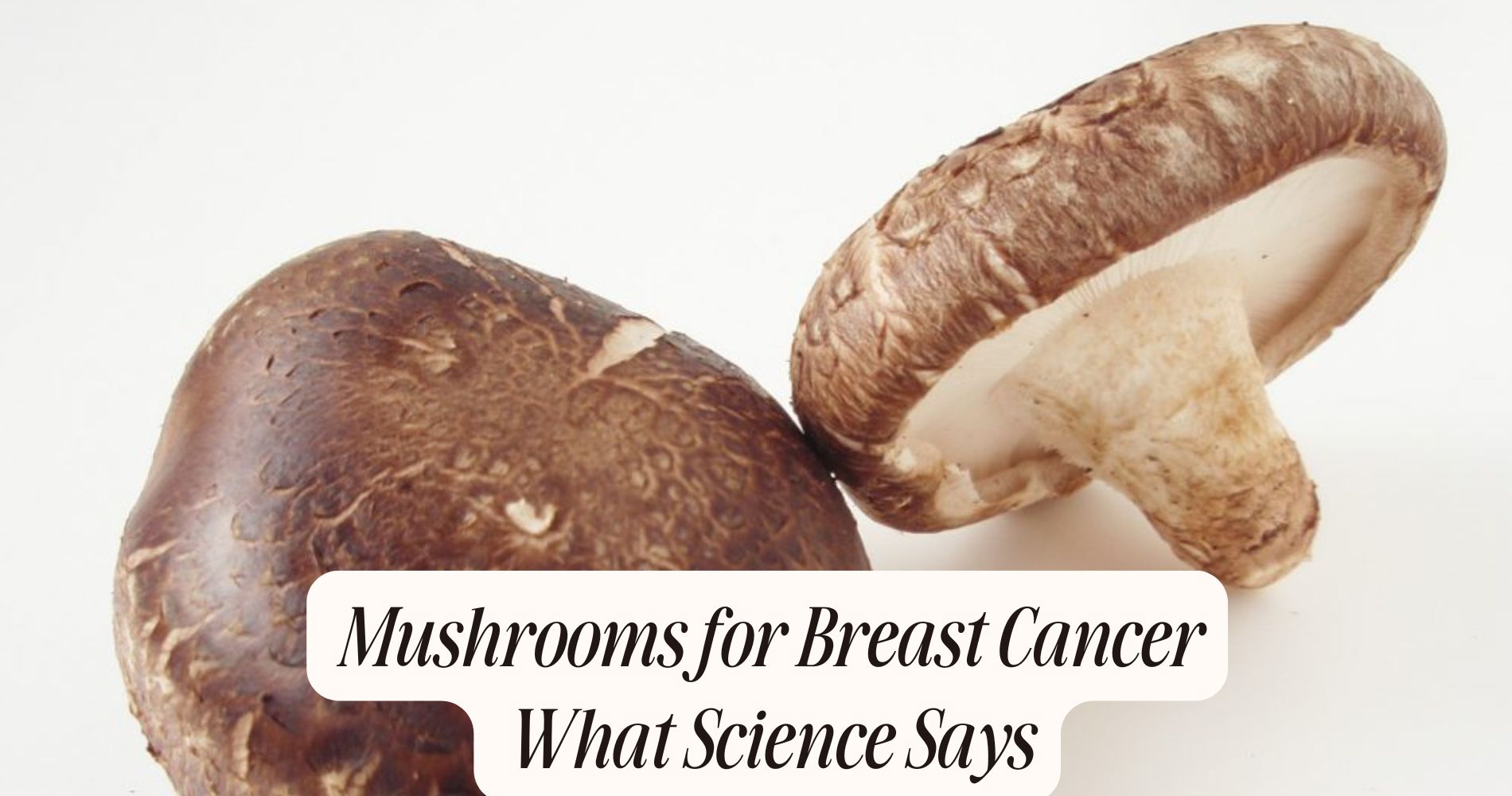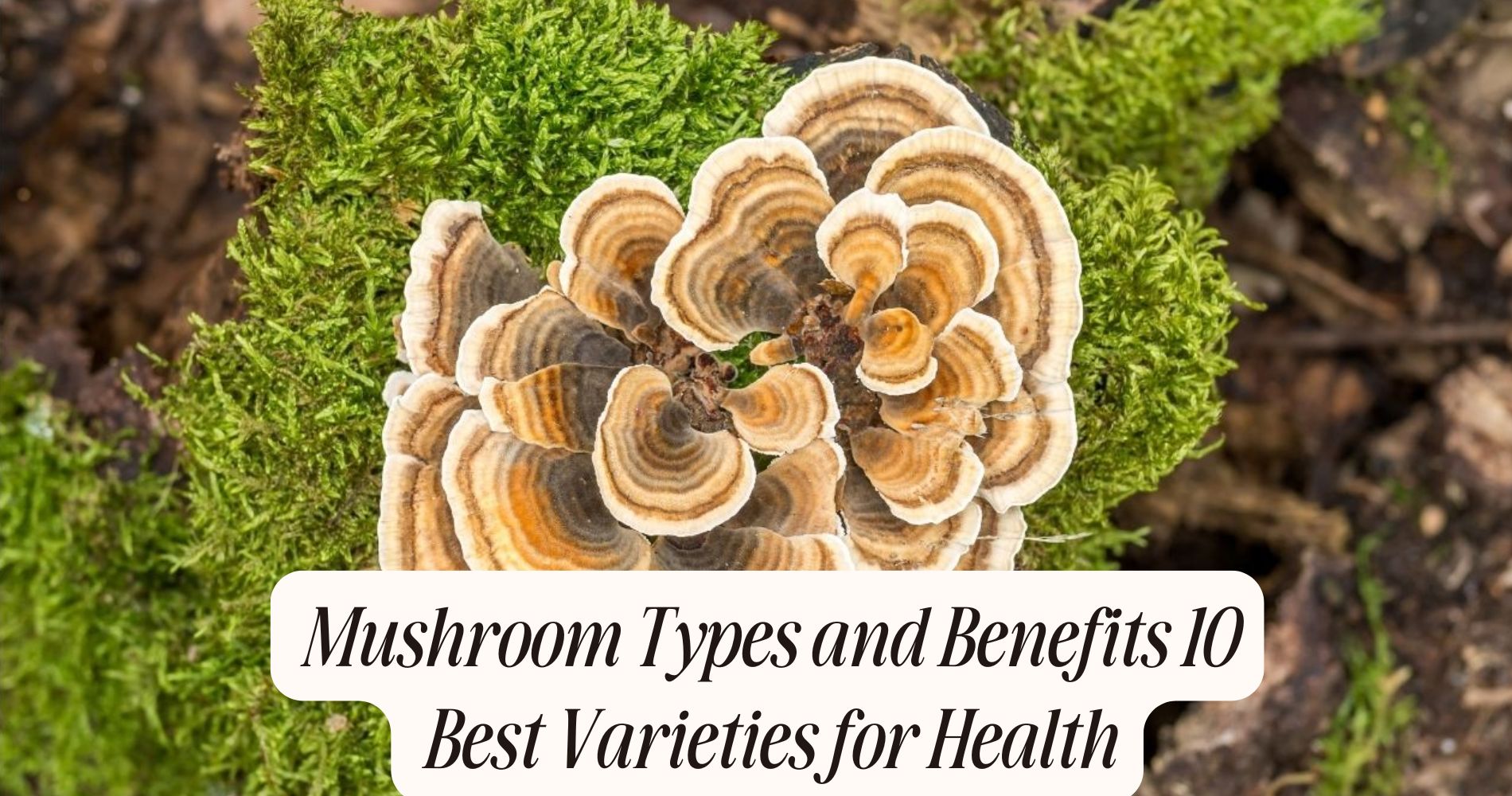
Who Should Not Take Reishi Mushroom? Risks and Warnings
Who should not take reishi mushroom? If you're considering reishi mushroom, it's important to be aware of who should avoid it. Individuals with mushroom allergies, pregnant or breastfeeding women, and those with autoimmune disorders should steer clear. If you're taking blood-thinning medications, have low blood pressure, liver conditions, or gastrointestinal issues, consult a healthcare provider. Children and adolescents should also avoid it due to safety concerns. Knowing the risks can help you make safe choices for your health—learn more about specific considerations that might apply to you.
Individuals With Allergies to Mushrooms
If you have a history of allergies to mushrooms, it's crucial to approach reishi mushroom with caution.
Mushroom allergies can trigger allergic reactions that may range from mild to severe. Symptoms can include hives, itching, or even more serious issues like difficulty breathing.
You should consider discussing your specific allergy history with a healthcare provider before trying reishi. They can help you weigh the potential benefits against the risks in a patient-centered manner.

If you've previously experienced reactions to other fungi, it's wise to avoid reishi altogether.
Remember, your safety comes first, and taking a proactive approach guarantees you make informed decisions about your health.
Always prioritize listening to your body and seeking professional advice when in doubt.
Pregnant and Breastfeeding Women
While reishi mushroom is often praised for its health benefits, pregnant and breastfeeding women should approach it with caution. During pregnancy, your nutrition is vital for your baby's development, and the effects of reishi on fetal health aren't well-studied.
There's limited evidence on how it might impact pregnancy outcomes or breastfeeding safety, making it wise to err on the side of caution.
If you're considering incorporating reishi into your diet, consult your healthcare provider first. They can help you weigh the potential risks against your nutritional needs.
People With Autoimmune Disorders
For individuals with autoimmune disorders, taking reishi mushroom can pose significant risks due to its immune-modulating properties.
Your immune system is already functioning in overdrive, mistakenly attacking your body's own tissues. Introducing reishi could further alter your autoimmune response, potentially leading to flare-ups or worsening symptoms.

While reishi is known for its health benefits, it may not be suitable for everyone, especially those managing conditions like lupus, rheumatoid arthritis, or multiple sclerosis.
It's essential to consult with your healthcare provider before adding it to your regimen. They can help you weigh the potential benefits against the risks based on your unique health situation, ensuring you make informed, patient-centered decisions for your well-being.
Those on Blood-Thinning Medications
Taking reishi mushroom can be risky for those on blood-thinning medications, as it may enhance the effects of these drugs.
If you're taking anticoagulants like warfarin or aspirin, be aware of potential blood thinning interactions. Reishi has natural properties that could further thin your blood, increasing your risk of bleeding.
It's essential to consult your healthcare provider before adding reishi to your regimen, as they can help determine safe dosage considerations tailored to your specific needs.
Always prioritize your safety by being open about all supplements you're considering.
Individuals With Low Blood Pressure
If you have low blood pressure, incorporating reishi mushroom into your routine may not be ideal. This natural supplement can potentially lower blood pressure further, complicating your pressure management efforts. You might experience dizziness, fatigue, or fainting, which can be concerning if you're already dealing with low blood levels.
Instead, focus on maintaining a balanced diet rich in nutrients that support healthy blood pressure, like leafy greens and whole grains.
Always consult your healthcare provider before adding any supplement, including reishi mushroom, to your regimen. They can help you determine the best approach for your unique needs, ensuring your well-being while effectively managing your low blood pressure.
Prioritizing safety is essential for your overall health journey.
Patients Undergoing Surgery
Patients preparing for surgery should be cautious about using reishi mushroom. While this natural supplement offers various health benefits, it can pose surgical risks.
Reishi may affect blood clotting, increasing the likelihood of excessive bleeding during and after your procedure. Additionally, it can interact with anesthesia, leading to potential complications. For instance, reishi might enhance the effects of sedatives, causing prolonged drowsiness or unpredictable responses during surgery.

It's crucial to discuss any supplements you're taking with your healthcare provider well in advance of your operation. By doing so, you guarantee a safer surgical experience and minimize any anesthesia concerns.
Prioritizing your health before surgery means being informed and making choices that support your well-being.
People With Liver Conditions
For those with liver conditions, using reishi mushroom can be a risky endeavor. Your liver health is vital, and introducing any herbal supplement may lead to unwanted interactions.
Reishi mushroom has compounds that could affect liver function, especially if your liver is already compromised. If you're managing conditions like hepatitis or cirrhosis, it's important to be cautious.
Always consult your healthcare provider before adding new supplements to your routine. They'll help assess potential risks and monitor any adverse effects.
Remember, prioritizing your liver health means being mindful of what you consume. By being proactive and informed, you can make choices that support your overall well-being without jeopardizing your liver.
Stay safe and informed!
Individuals Taking Immunosuppressive Drugs
While reishi mushroom is often praised for its potential health benefits, individuals taking immunosuppressive drugs should tread carefully.
These medications work to suppress your immune system, making it vital to avoid any substances that could interfere with their effectiveness. Reishi mushroom may have immune-modulating properties, which could lead to unpredictable drug interactions.
This means that while you might seek the benefits of reishi, it could inadvertently enhance or diminish the effects of your medication. Always consult your healthcare provider before adding reishi to your regimen.
They can help you weigh the potential benefits against the risks, ensuring your immune system remains balanced and your treatment stays effective. Prioritizing your health means being informed and cautious.
Those With Gastrointestinal Issues
Reishi mushroom is known for its health benefits, but if you have gastrointestinal issues, you might want to think twice before incorporating it into your routine.
Those with gastrointestinal sensitivity may experience discomfort, such as bloating, nausea, or diarrhea when consuming Reishi. This mushroom can impact your digestive health, potentially exacerbating existing conditions.

Listening to your body is vital; if you notice any adverse effects, it's wise to stop using it. Always consult your healthcare provider before adding new supplements, especially if you have pre-existing digestive concerns.
Taking a patient-centered approach guarantees that you prioritize your well-being while exploring natural remedies. Ultimately, your comfort and health should come first.
Children and Adolescents
Many parents wonder if Reishi mushroom is safe for their children and adolescents. While Reishi offers health benefits, such as immune support and stress reduction, its use in younger individuals isn't well-studied.
Evidence suggests that children's bodies process supplements differently, which raises concerns about appropriate dosage. There's no established "safe dosage" for Reishi in kids, and given their unique developmental needs, it's important to approach this with caution.
Before considering Reishi for your child or teen, consult a healthcare professional to discuss potential risks and benefits. Prioritizing their health means ensuring that any supplement aligns with their specific needs and conditions.
A Smarter Way to Enjoy Mushroom Benefits
If you're looking for a convenient and delicious way to experience the benefits of functional mushrooms, Well Gummies' SUPER MUSHROOM GUMMIES are a perfect choice. Each gum chew is packed with 10 powerful mushroom varieties, delivering calmer energy, sharper focus, and immune support in an easy-to-take form. Plus, they taste like fresh wild berries—just like your favorite candy! No jitters, no crash—just clean, sustained energy to keep you feeling your best all day long. Try them today and fuel your mind and body naturally!
Frequently Asked Questions
Can Reishi Mushrooms Interact With Other Herbal Supplements?
Yes, reishi mushrooms can interact with other herbal supplements, potentially affecting herbal supplement safety. It's crucial to consult a healthcare provider to determine the appropriate reishi mushroom dosage for your specific needs and interactions.
What Are the Long-Term Effects of Reishi Mushroom Consumption?
When you consume reishi mushrooms long-term, you might experience benefits like improved immune function and stress reduction. However, it's essential to follow dosage recommendations to guarantee safety and maximize those potential benefits.
Are There Any Known Drug Interactions With Reishi Mushrooms?
When considering reishi mushrooms, it's vital to know they can interact with certain medications. Always consult your healthcare provider about reishi benefits and the appropriate dosage to guarantee safe, effective use alongside your current treatments.
Can Reishi Mushrooms Cause Allergic Reactions Other Than Mushrooms?
Reishi mushrooms can trigger allergic reactions, especially in those with mushroom sensitivity. If you've had reishi allergies before, it's best to consult your healthcare provider before incorporating them into your wellness routine. Stay informed and safe!
Is It Safe to Take Reishi Mushrooms With Over-The-Counter Medications?
When considering Reishi mushrooms, check medication safety first. While many tolerate them well, some over-the-counter interactions may occur. Always follow Reishi dosage guidelines and consult your healthcare provider to guarantee your safety.
Conclusion
If you're considering reishi mushroom, it's essential to weigh the potential risks against the benefits. Always consult your healthcare provider, especially if you have allergies, are pregnant, or are on specific medications. Taking a holistic approach means prioritizing your overall well-being and understanding how reishi might interact with your unique health situation. Being informed helps you make the best choices for your health journey. Listen to your body and seek guidance when needed.




